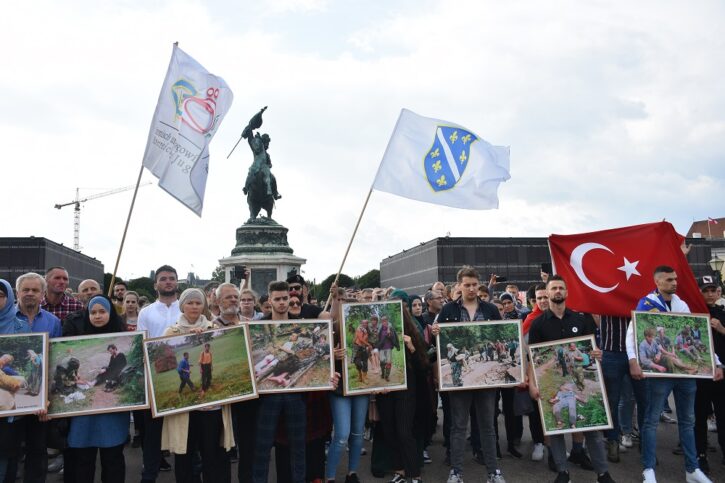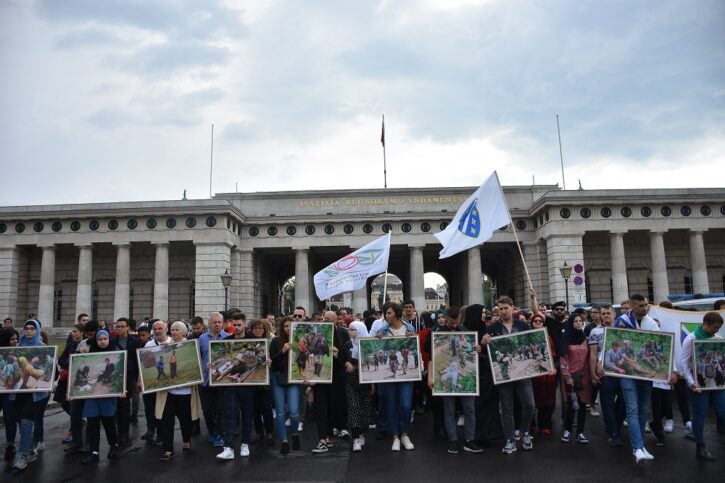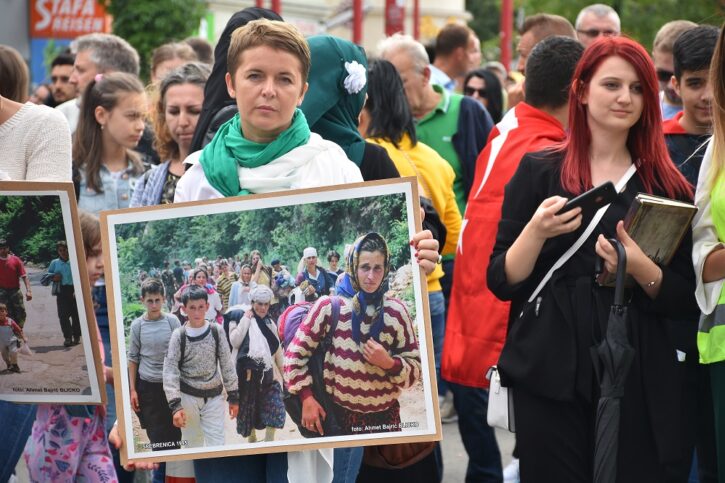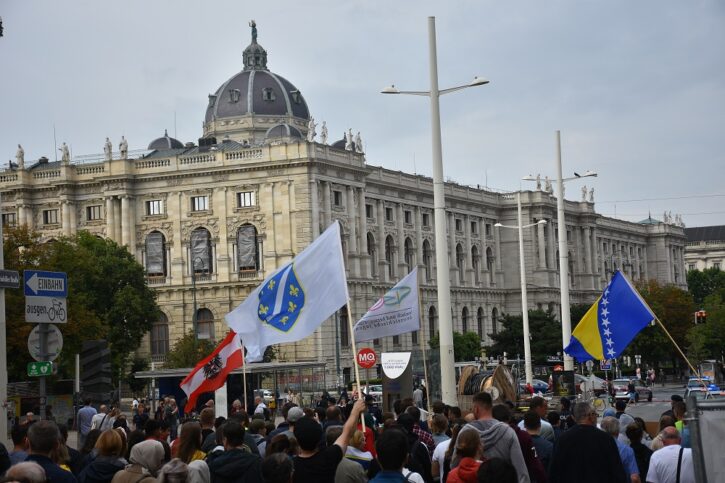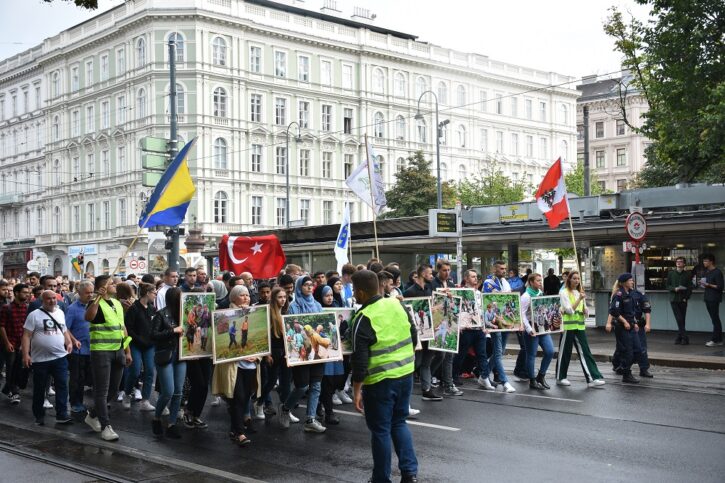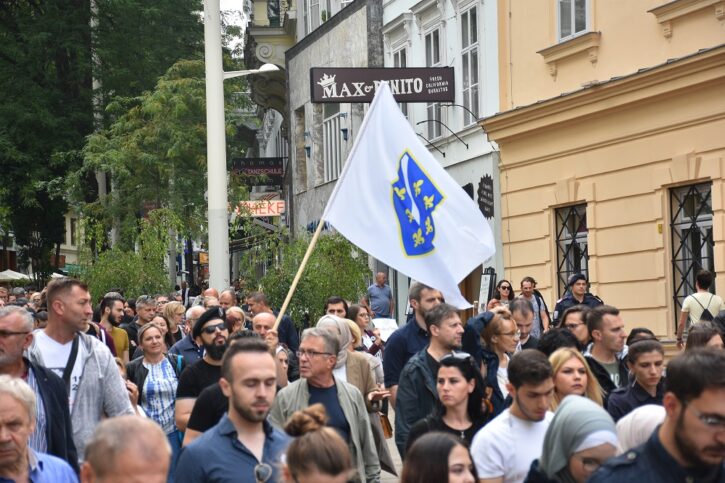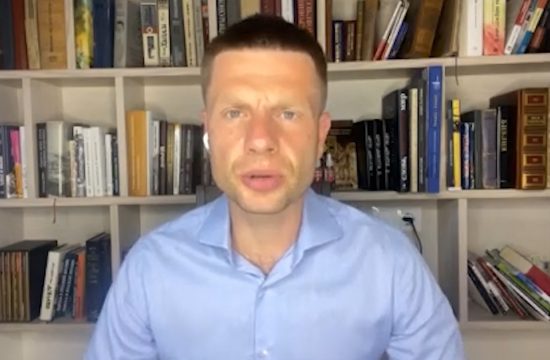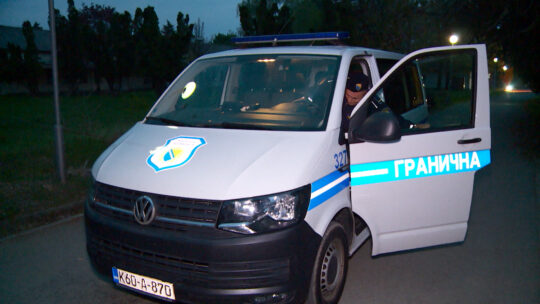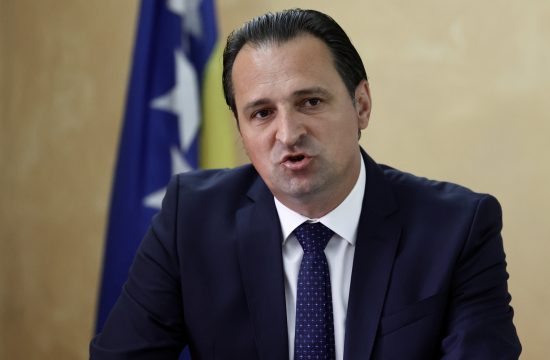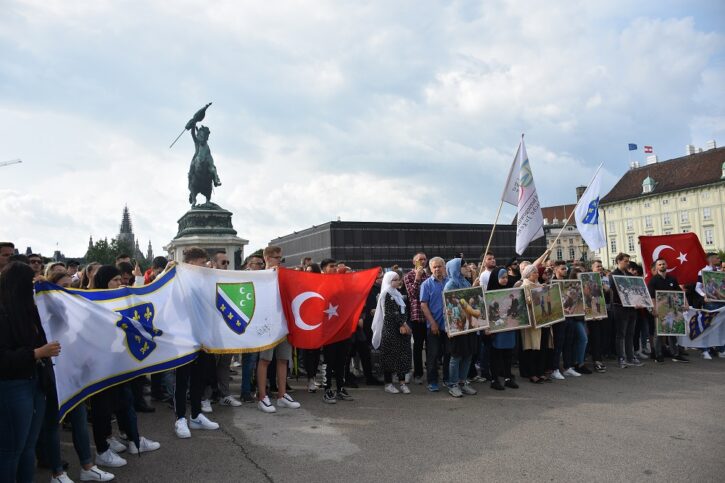
Several hundred people gathered in Vienna, this weekend, marking the 24th anniversary of the Srebrenica genocide.
The people who gathered in Vienna carried the flags of Bosnia, Austria and Turkey, as well as victims’ photographs.
Adverse weather conditions did not stop them from remembering the victims, who were killed after the UN's safe zone fell into the hands of Serb police, army and paramilitary formations in July 1995, who killed 8,372 innocent civilians.
Thirty-three newly identified victims were buried on July 11, 2019, In the Srebrenica Memorial Center – Potocari, eastern Bosnia.
So far 6,443 victims of genocide have been buried in the Srebrenica Memorial Center – Potocari and more than 1,000 missing Srebrenica victims are yet to be found.
A total of 432 minors and 26 women were buried there as well.
The remains of victims of genocide were found at about 570 different sites.
The youngest ever buried victim in Potocari was a newborn, a girl called Fatima Muhic, and the oldest was grandmother Shaha Izmirlic, born in 1901.
In April 1993, the UN had declared the besieged enclave of the eastern Bosnian town of Srebrenica a safe area under UN protection.
However, in July 1995, the Dutch battalion soldiers failed to prevent the town's capture by the Bosnian Serb forces and the massacre that followed.
More than 8,000 Bosniak men and boys were killed in the days following July 11, 1995, and so far the remains of more than 6,600 have been found and buried.
The International Criminal Tribunal (ICTY) for the Former Yugoslavia and the International Court of Justice later ruled that the massacre was an act of genocide.
International and regional courts have sentenced 45 people for what happened in Srebrenica to a total of more than 700 years behind bars. Those who the ICTY sentenced to life imprisonment are Ljubisa Beara, Zdravko Tolimir, and Vujadin Popovic. But the most well known alleged masterminds of what happened in Srebrenica are former Bosnian Serb politician Radovan Karadzic and ex Bosnian Serb general Ratko Mladic, and both have been sentenced for it but have appealed.
To date, Bosnian Serb leadership have never recognised the Srebrenica massacre as an act of genocide.

